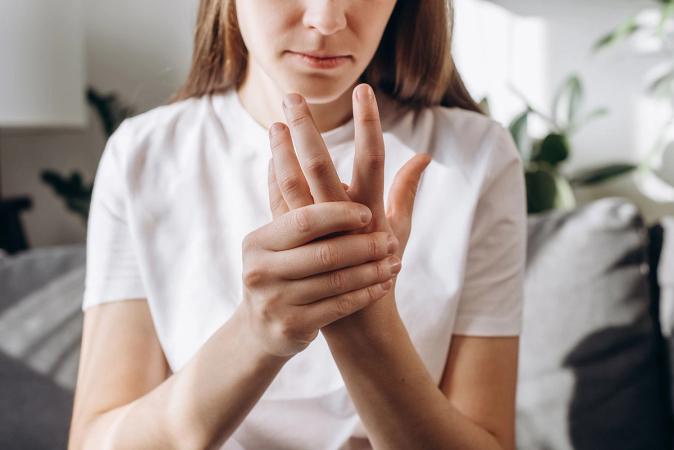question
can arthritis cause swelling?
Yes, arthritis can indeed cause swelling in the joints. This swelling is often a result of inflammation, which is a common symptom associated with various types of arthritis, including both inflammatory and degenerative forms.
Types of Arthritis and Swelling
-
Inflammatory Arthritis:
- Conditions such as rheumatoid arthritis (RA) and psoriatic arthritis are characterised by inflammation that can lead to noticeable swelling in the affected joints.
- In RA, for instance, the immune system mistakenly attacks the joint lining, causing inflammation, pain, and swelling. This swelling can affect smaller joints, such as those in the hands and feet, but larger joints can also be involved.
-
Osteoarthritis:
- While osteoarthritis is primarily a degenerative joint disease, it can also lead to swelling. This occurs due to the wear and tear of cartilage, which can cause the body to respond with inflammation in the joint area.
- Swelling in osteoarthritis may be accompanied by stiffness and pain, particularly after periods of inactivity.
Symptoms Associated with Swelling
- Swelling in the joints can be accompanied by other symptoms, including:
- Pain: The affected joint may be painful to touch or during movement.
- Stiffness: Many individuals experience stiffness, especially in the morning or after sitting for long periods.
- Redness and Warmth: The skin over the swollen joint may appear red and feel warm to the touch.
Importance of Monitoring Swelling
It is crucial to monitor any swelling in your joints, as persistent swelling can indicate ongoing inflammation that may require medical attention. If you notice swelling that lasts for more than a few days, or if it is accompanied by severe pain, redness, or warmth, it is advisable to consult a healthcare professional. They can help determine the underlying cause and recommend appropriate treatment options.
Managing Swelling
There are several strategies to manage swelling associated with arthritis:
- Rest and Ice: Resting the affected joint and applying ice packs can help reduce swelling and provide temporary relief.
- Medications: Over-the-counter pain relievers or prescription medications can help manage inflammation and pain.
- Physical Therapy: Engaging in gentle exercises can improve joint function and reduce swelling over time.
- Footwear and Orthotics: Wearing supportive shoes and using custom orthotic inserts can alleviate pressure on swollen joints, particularly in the feet.
Conclusion
In summary, arthritis can cause swelling in the joints due to inflammation, particularly in inflammatory types like rheumatoid arthritis and psoriatic arthritis. If you experience persistent swelling, it is essential to seek professional medical advice to ensure proper management and treatment. Remember, early intervention can significantly improve your quality of life and help manage symptoms effectively.
This information is not a substitute for professional medical advice, diagnosis or treatment. Always consult a registered healthcare professional about matters that affect your health. Clara uses artificial intelligence to generate general information for personal educational purposes only, not intended to be a management plan and it may contain errors, inaccuracies or may oversimplify concepts.










